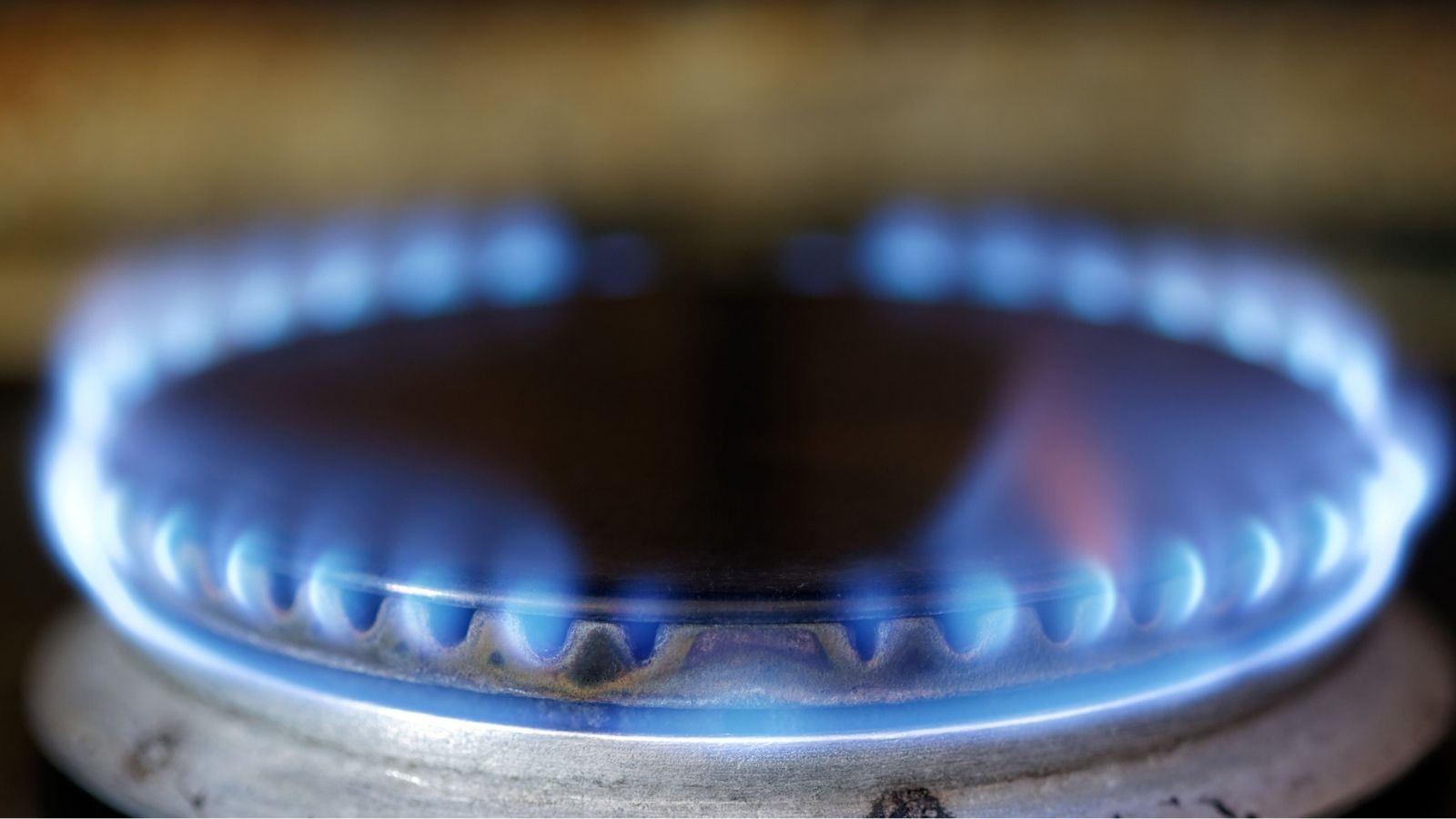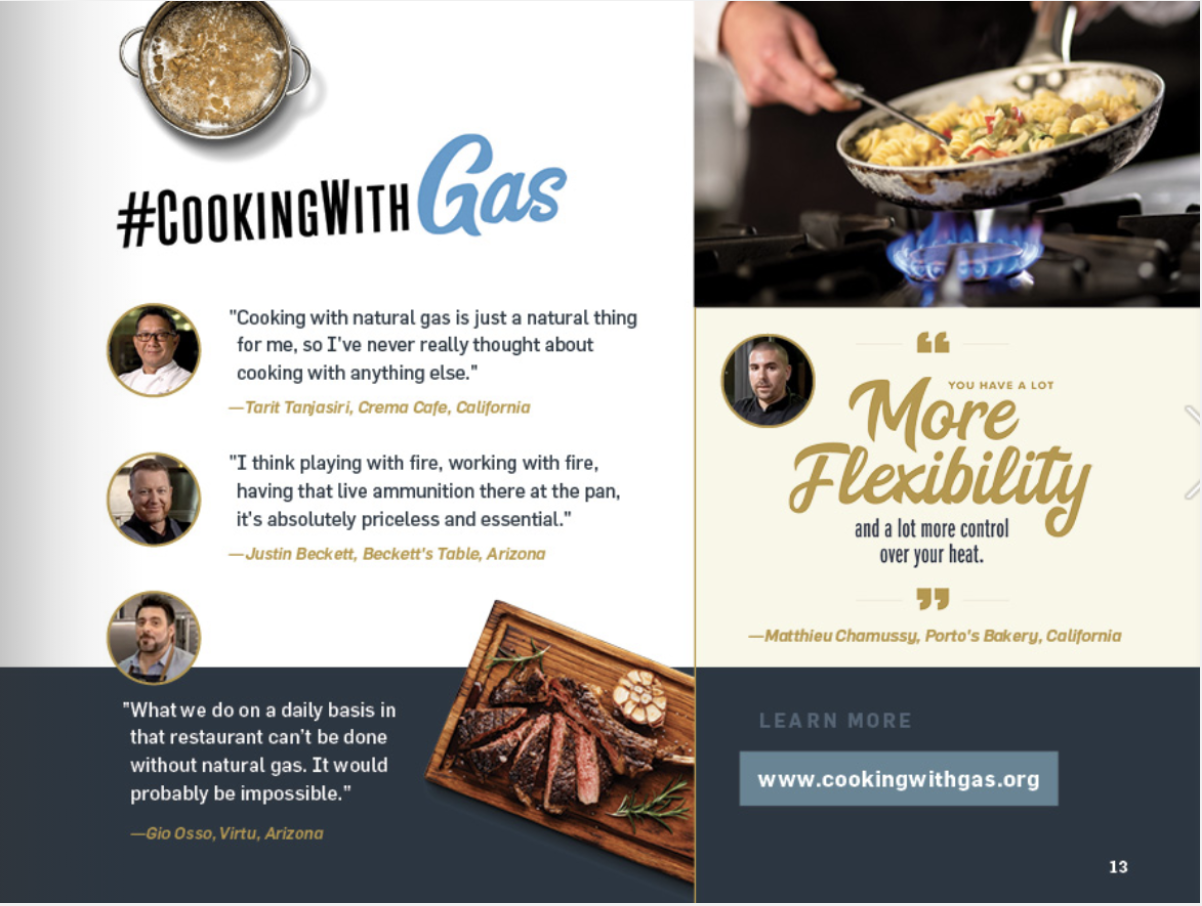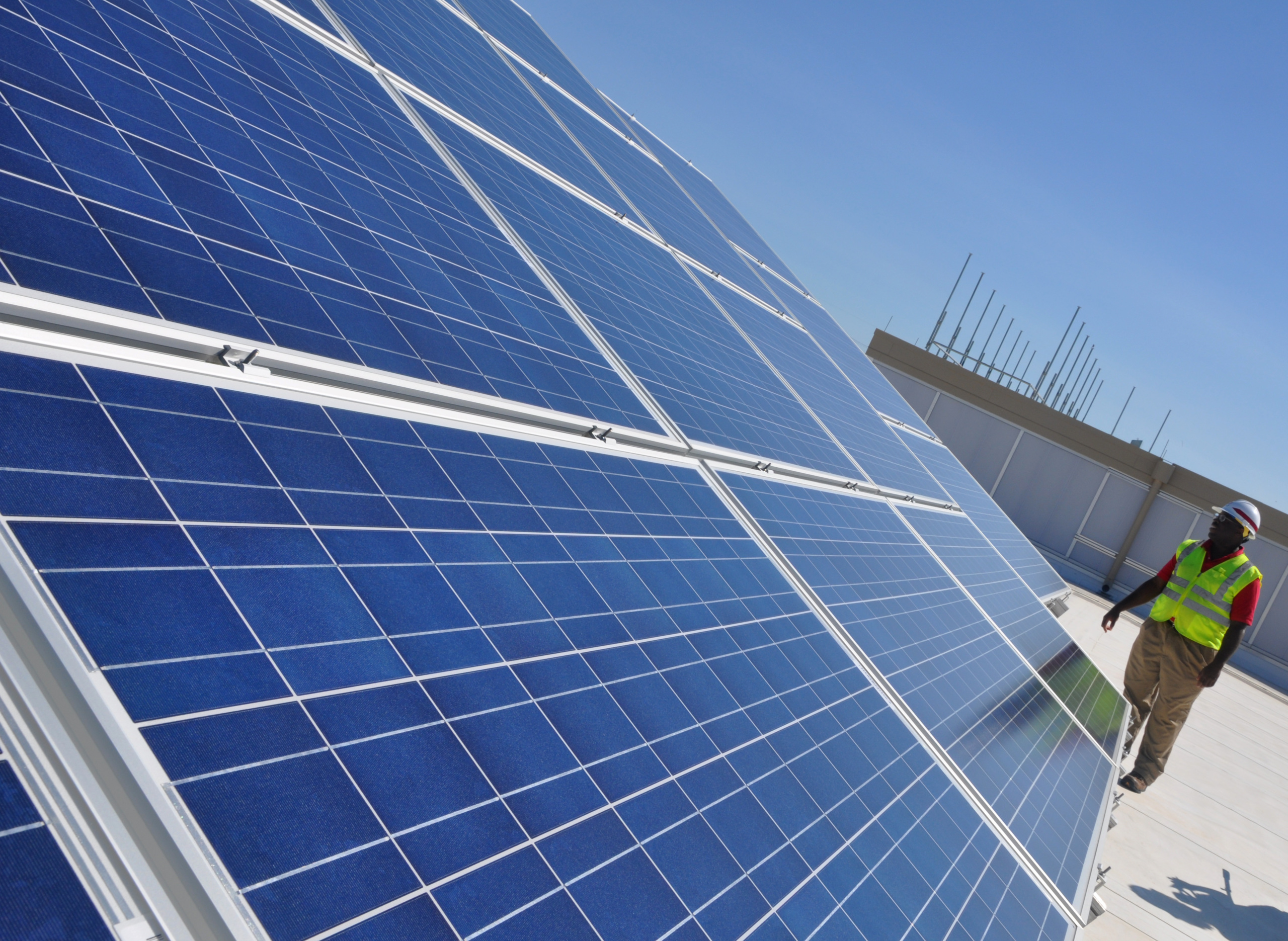Do I need to give up cooking with gas to save the planet?
Gas heating and cooking appliances are major contributors to U.S. climate emissions, and may even be harming our health. Meanwhile, electric cooking and heating tech has improved dramatically in recent years.

“Now you’re cooking with gas!”
So what if this catch phrase was manufactured by the gas industry? To many people who love to cook, the sentence reflects the truth: the response speed and ease of control offered by gas stoves make them superior to electric models. Plus, there’s just something that feels right, deep in our human DNA, about cooking with fire.
But, as you probably know already if you’re taking the time to read this blog, cooking with gas comes with a cost. As the quality of electric alternatives improves, many chefs and wanna-be chefs are rethinking whether that cost is worth it.
The good news? A clean energy future need not be a dystopia of bad cooking.
Burning gas is warming the planet
Gas appliances are everywhere — and when it comes to climate emissions, they’re far from trivial. In 2017, cooking (and heating) with gas in the U.S. generated emissions at least equivalent to those produced by at least 115 million gasoline-burning cars.
But that’s a low estimate. The real number is likely much higher, when accounting for the fact that gas leaks significantly when it’s produced, transported and used. In fact, a 2019 study of five East Coast cities found that they emitted twice the amount of methane originally estimated by the Environmental Protection Agency, with much of the underestimation resulting from not including on-site leaks at homes and businesses.
Burning gas pollutes the air in your home
A growing body of research is finding that indoor use of gas appliances may be hazardous to our health as well.
Burning methane releases byproducts including carbon monoxide, particulate matter and nitrogen dioxide. Running a stove and oven for just 45 minutes can produce pollution levels that would be illegal outdoors. And epidemiological research has suggested that kids in homes with gas stoves are 42 percent more likely to have asthma than children in homes with electric stoves.
With all this in mind, it’s becoming clear that replacing all of America’s gas appliances would come with some serious benefits:
-
Less global warming pollution. While at one point electric appliances may have been responsible for nearly as much global warming pollution as gas ones, today America’s electric grid has 20 times more renewable power than it did two decades ago. As we continue to add more clean electricity, electric appliances will only get cleaner. Not so for gas.
-
Fewer health risks. A California study by the UCLA Fielding School of Public Health found that getting rid of gas appliances would result in approximately 350 fewer annual premature deaths due to illnesses caused by indoor air pollution in the Golden State alone.
-
Lower lifetime costs. Research that examined the costs of incorporating electric technologies in buildings in four U.S. cities (Oakland, Houston, Providence and Chicago) found that in each city, installing these technologies in new construction saved consumers money over installing gas or oil systems.
But don’t electric appliances have a reputation for being unreliable, inefficient and expensive?
They do — but it’s a reputation earned by older tech.
Times have changed. Just as an acceleration of clean energy technology (and better laws, fought for by groups like ours) has led to the exponential growth of wind and solar, major improvements have led to better electric appliances.
Today, induction cooktops cook evenly and change heat settings on a dime. Air-source electric heat pumps work in warm and cold climates alike, and function efficiently down to -15°F. Newer water heat pumps are often two to three times as efficient as electric resistance water heaters.

Communities are saying goodbye to dirty gas
Many cities and towns have come to realize that electric appliances are not only meeting the standards of discerning home chefs — they’re also healthier, safer and necessary for climate action. Electric buildings are key components of a clean energy future.
Increasingly, cities have passed cleaner building codes that would ban new gas hookups. Seattle, New York and 40 municipalities in California have all voted to ban or restrict gas hookups in new buildings. The European Union requires all buildings constructed in 2021 to be “nearly net-zero” on carbon emissions.
And wherever up-front installation costs are prohibitive, they’re developing rebate programs and financing that take advantage of electric appliances’ lower lifetime costs.
What are the big gas companies afraid of?
But the gas industry isn’t taking these climate-conscious efforts lying down. “Preemption” bills that would prevent communities from passing bans or restrictions on new gas hookups have been introduced in more than a dozen state legislatures. In 2020 alone, Arizona, Tennessee, Oklahoma and Louisiana all passed their “preemption” bills. And in Arkansas, Kentucky and Utah, these bills are moving quickly through the legislative process.
After all, the industry wants to protect its decades-long investment in convincing Americans to purchase gas appliances. (Spoiler alert: CookingWithGas.com is not a passion project cooked up, if you will, by chefs. It’s an industry-sponsored website.) Half of all homes built in 2019 came with a gas stove, up from less than 30 percent in the ‘70s.

Who would pay for a website extolling the wonders of cooking with gas? The American Gas Association, that’s who.
We have the power
Right now, Environment America and our national network of state environmental groups are working to block the gas industry’s bills wherever they arise — because wherever the gas industry succeeds, communities lose the power to choose the option that’s better for the climate and for residents’ health and pocketbooks.
You might have a gas stove in your home now, but when it comes time to replace it, consider going electric. It’s better for the planet and better for your health — and it might even be better for your cooking.
No matter what, consider the facts. And don’t let the gas industry tell you or your community what to do.
Stand Up For Energy Efficiency
Topics
Authors
Jake Taber
Find Out More

Bank of America said it would stop financing drilling in the Arctic Refuge. Now it’s backtracking.

Unlocking America’s rooftop solar potential

We brought FedEx’s golden solar opportunity to their doorstep


